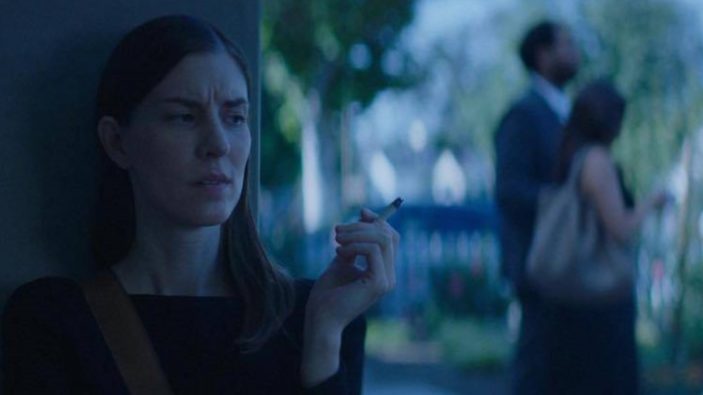
The framing of My Fiona‘s opening scene is laced with a certain tension that very much clues the audience in on the fact that the film’s protagonist, Jeanette Maus‘s Jane, is about to have her life horrifically shattered. It’s an emotional, painful way for us to bond with a character, but it immediately establishes a connection with someone who appears difficult to swallow.
The Fiona of the title is Jane’s best friend and business partner, a woman who, within seconds of the film’s opening, commits suicide. There’s evidently a reason to her doing this, but we are given very little insight in these opening moments, only gradually uncovering Fiona’s state of mind as Jane and Fiona’s widow, Gemma (Corbin Reid), learn to navigate their lives in the aftermath.
Inserting herself into Gemma’s life – the only coping mechanism she seems to grasp – Jane takes on the role of nanny to Gemma and Fiona’s young son, Bailey (Elohim Nycalove), hoping that in helping them she can somehow help herself through a period of grief she’s unsure how to make sense of. Making matters even more complicated is Jane’s sudden sexual awakening, attaching herself to Gemma in an intimate fashion that writer/director Kelly Walker wisely contains in an organic setting.
Bisexuality is rarely explored in cinema in an honest way – so often someone’s claim of bisexuality is merely an “excuse” or gateway to accepting homosexuality – and whilst Jane’s feelings for Gemma are possibly born from their shared experience, she discusses it in a manner that suggests the inclination was always there, she just never gave herself the time to actively explore.
A film like My Fiona, one that is so emotionally excruciating, could easily run the risk of overindulging in its sentimentality, especially with someone like Jane at its core, someone who could grate on a viewer’s nerves due to her self-destructive and invasive nature. Thankfully in the control of Maus, Jane is wholly realised and incredibly relatable, even as she spirals out-of-control and is prone to hurting those around her with her emotionally driven outbursts. Her messy handling of untapped territory is well balanced by the more level-headed, though no less emotional Gemma, played with such poise and functionality by Reid.
A film that very much expresses the notion that it’s perfectly acceptable, and perhaps even quite healthy, to not be okay when dealing with such unexpected grief, and that there’s no correct way in how one reacts, My Fiona ultimately proves a therapeutic experience. There’s heart here behind the mourning, but not in a manner that sugar-coats or talks down to the journey of mourning.
![]()
![]()
![]()
![]()
![]()
THREE AND A HALF STARS (OUT OF FIVE)
My Fiona is screening as part of this year’s Melbourne Queer Film Festival, which is running between March 11th and 21st, 2021. For more information head to the official MQFF website.
